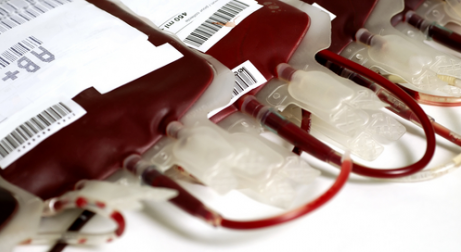The class of cancer in which fresh blood cells in the bone marrow fail to mature because of disorders of the hematopoietic stem cells, or fail to turn into healthy blood cells, are called Myelodysplastic syndromes. The different kinds of myelodysplastic syndromes are analyzed based on changes in the bone marrow and blood cells. Its symptoms include feeling tired and shortness of breath. The risk of myelodysplastic syndrome is dependent on age and previous history of treatment with radiation therapy or chemotherapy.
The average age for the outbreak of MDS is 68 years. In MDS, the quality of blood-forming cells and their number declines irreversibly, which further impairs blood production.
The goals of treatment are to
⦁ regulate symptoms,
⦁ enhance the quality of life,
⦁ improve overall chances of survival,
⦁ decrease chances of progression to acute myelogenous leukemia.
I have listed the treatment methods for MDS, which help in fighting against it.
- Chemotherapy
⦁ Chemotherapy involves the usage of drugs as pills or injections, for treating cancer.
⦁ This is called systemic treatment which is useful in treating MDS. Its aim is to eradicate infected stem cells and facilitate the growth of healthy ones.
⦁ Most vehemently used chemo drug for MDS is cytarabine (ara-C) which is often given in small dose to restrict the disease. Other chemo drugs used together with cytarabine are,
⦁ Topotecan
⦁ Fludarabine
⦁ Idarubicin
⦁ Hypomethylating Agent are useful in MDS as they slow down genes that stimulate cell growth and kill the rapidly dividing cells. Drugs used in this treatment include,
⦁ Azacitidine
⦁ Tecitabine
⦁ Immunomodulating drugs (IMiDs) are useful with MDS patients who have regular chromosomes and it crosses out the need for transfusion in a significant number of cases. The drugs used in this include,
⦁ Thalidomide
⦁ Lenalidomide
⦁ Immunosuppression involves treatment with the immune system suppressing drugs. These are useful for patients whose immune system is harming their bone marrow, causing low blood count, a condition known as hypocellular bone marrow, which is commonly observed in MDS patients.
⦁ Other drugs that have helped people with MDS include,
⦁ Anti-thymocyte globulin (ATG)
⦁ Cyclosporine
- Stem cell transplant
⦁ It is about the only way to fully cure MDS patients. It involves patients receiving a large dose of chemotherapy and/or full body irradiation to eliminate the defective cells in the bone marrow. It is followed by the patient accepting healthy stem cells to produce blood.
⦁ An allogeneic stem cell transplant is one in which the patient obtains blood-forming stem cells from a donor. These donor’s cell type must closely match the patient’s cell type, and it is preferred if the donor is related to the MDS patient.
⦁ An option for older patients can be non-myeloablative allogeneic stem cell which is a type of allogeneic transplant where lower doses of chemotherapy and/or radiation are given which allow the donor cells growth in the bone marrow.
- Supportive therapy
⦁ These include other treatments which aim at preventing the issues caused by low blood cell count.
⦁ Chelating agents are other drugs that can be used in patients who cultivate iron overload from blood transfusions. Most commonly used drug of this type are
⦁ Desferoxamine
⦁ Deferasirox
- Growth factors
⦁ Hormone-like substances that promote the bone marrow in the production of blood cells are called hematopoietic growth factors.
⦁ Erythropoietin is a growth factor that stimulates RBC production. It can help avoid RBC transfusions in a few cases. Other such growth factors include
⦁ Oprelvekin
⦁ Androgens, or male hormones
⦁ Darbepoetin alfa
⦁ Granulocyte macrophage-colony stimulating factor (GMCS-F)
⦁ Granulocyte colony stimulating factor (GCS-F)
These are the most often used treatments for MDS.

